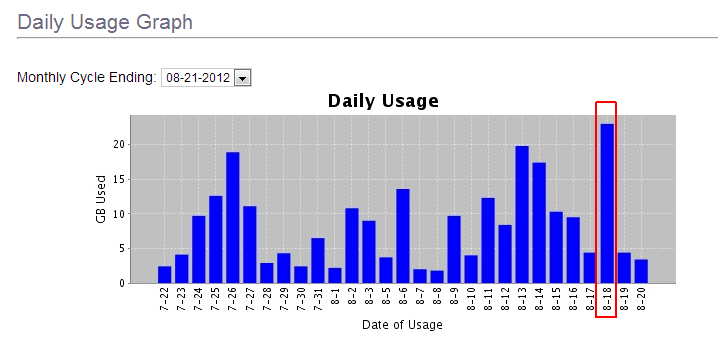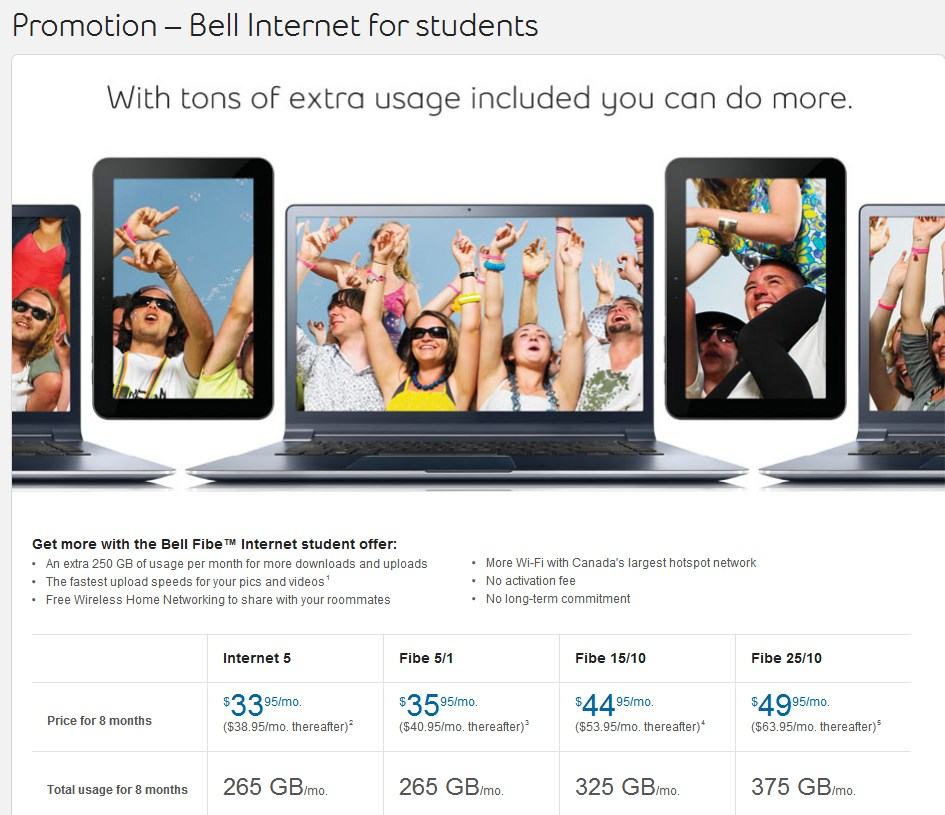Suddenlink’s decision to implement an Internet Overcharging scheme that couples usage caps with overlimit fees can be a real revenue-booster for the cable company, especially if a usage measurement tool decides to nip at your allowance with phantom usage that can eventually expose you to overlimit fees.
Simon, a Suddenlink customer in northern Texas contacted Stop the Cap! with news he managed to catch Suddenlink in the act of ginning up his broadband usage, measuring around 23GB of broadband usage in just one day:

Here is what Suddenlink’s usage measurement tool reports Simon has used during the month of August. Not the 23GB measurement recorded for Aug. 18.
“Suddenlink believes I used ~23GB and my router confirms I only used 2.22GB (a difference of 936%),” Simon writes. “It’s insane.”
Even more unusual is Suddenlink’s measurement tool recorded that usage on a day when a thunderstorm knocked out his cable broadband service for nearly six hours during peak usage times. It is not the first time Suddenlink’s meter has gone haywire.
Consumers are at the whim of broadband provider-supplied measurement tools, which are unregulated and unmonitored by federal, state, or local authorities. What those tools measure is what customers will be billed for, with no verification or proof of accuracy required.
Companies utilizing these measurement tools require customers to accept the provided measurements as the final word on the matter.
“I think it’s a repugnant money grab that needs to be regulated by the state or federal government,” Simon shares.
Unregulated metered billing is a dream come true for providers who can bill customers whatever they want.


 Subscribe
Subscribe







